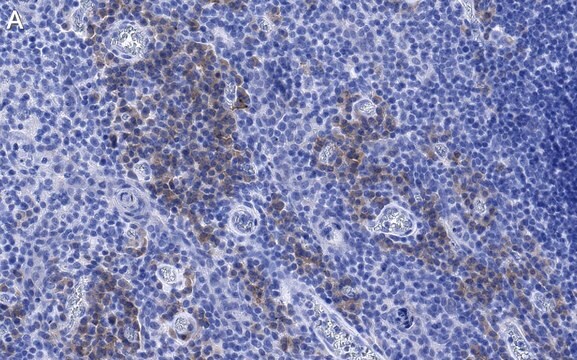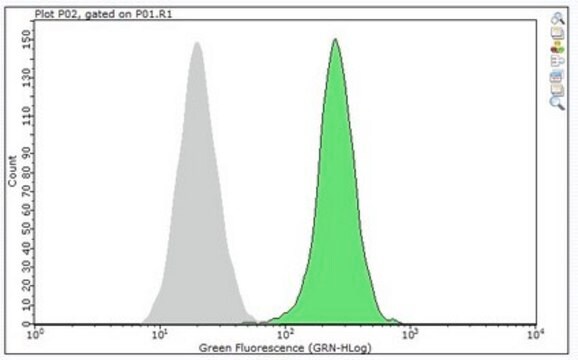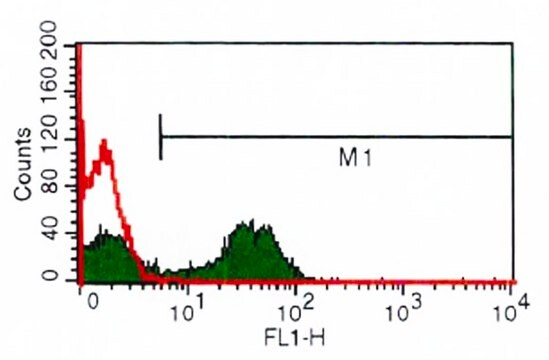CBL517
Anti-CD28 Antibody, clone 15E8
clone 15E8, Chemicon®, from mouse
Sinónimos:
Tp44
About This Item
Productos recomendados
origen biológico
mouse
Nivel de calidad
forma del anticuerpo
purified antibody
tipo de anticuerpo
primary antibodies
clon
15E8, monoclonal
reactividad de especies
human
no debe reaccionar con
canine
fabricante / nombre comercial
Chemicon®
técnicas
flow cytometry: suitable
isotipo
IgG1
Nº de acceso NCBI
Nº de acceso UniProt
Condiciones de envío
wet ice
modificación del objetivo postraduccional
unmodified
Información sobre el gen
human ... CD28(940)
Especificidad
FUSION PARTNER: SP2/0
Inmunógeno
Aplicación
Inflammation & Immunology
Immunoglobulins & Immunology
This antibody will act in cell stimulation studies where it has been suggested that measuring T cell function in HIV infected asymptomatic patients may be an early indicator of AIDS, independent of CD4 + cell counts
Optimal working dilutions must be determined by the end user.
Ligadura / enlace
Forma física
Almacenamiento y estabilidad
Otras notas
Información legal
Cláusula de descargo de responsabilidad
¿No encuentra el producto adecuado?
Pruebe nuestro Herramienta de selección de productos.
Código de clase de almacenamiento
12 - Non Combustible Liquids
Clase de riesgo para el agua (WGK)
nwg
Punto de inflamabilidad (°F)
Not applicable
Punto de inflamabilidad (°C)
Not applicable
Certificados de análisis (COA)
Busque Certificados de análisis (COA) introduciendo el número de lote del producto. Los números de lote se encuentran en la etiqueta del producto después de las palabras «Lot» o «Batch»
¿Ya tiene este producto?
Encuentre la documentación para los productos que ha comprado recientemente en la Biblioteca de documentos.
Nuestro equipo de científicos tiene experiencia en todas las áreas de investigación: Ciencias de la vida, Ciencia de los materiales, Síntesis química, Cromatografía, Analítica y muchas otras.
Póngase en contacto con el Servicio técnico








